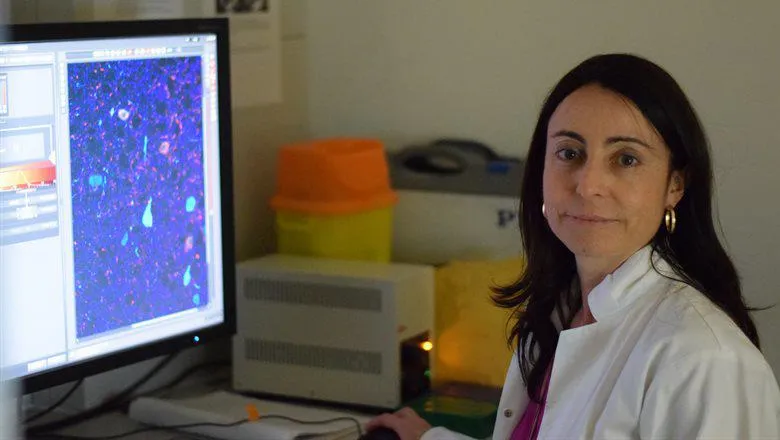I am very grateful to the European Research Council for its support and recognition of basic science. Scientific knowledge is the best tool we have to progress and fight any threats. This project will allow us to address a long-standing question, how early life experience influences brain development.
Professor Beatriz Rico, Developmental Neurobiology, Institute of Psychiatry, Psychology & Neuroscience (IoPPN), King's College London
31 March 2020
Professor Beatriz Rico amongst the 185 scientists to win the European Research Council's Advanced Grants
€450 million for Europe's long-term frontier research

King's academic, Professor Beatriz Rico was one of the 185 scientists to receive one of the ERC grants for her project 'Assembly and plasticity of inhibitory cortical networks by early learning experience'.
The goal of this project is to understand the mechanisms through which enhanced sensory experience during development sculpts cortical circuitries to improve behavioural performance in mice. The research will shed light on the mechanisms shaping the assembly and function of cortical circuitries during early sensory experience.
The extraordinary diversity of animal behaviours relies on the precise assembly and fine-tuning of synapses in the brain. This connectivity reaches an exceptional level of complexity in the mammalian cerebral cortex, where experience-dependent plasticity endows neural circuits with the flexibility required for adapting to a continuously changing environment, the neural basis of learning. However, while learning occurs throughout our entire existence, several studies have shown that learning during early periods of postnatal development has a transformative effect in functional performance later in life.
The brain is particularly susceptible to external environment influences during postnatal development, in particular during specific time windows known as critical periods that are characterized by the onset of robust plasticity in response to sensory experience. There is an overwhelming number of studies showing that the quality of parent-child interactions is a good predictor of risk for a range of psychopathologies. Likewise, it is generally accepted that exposing young children to early sensory stimulation such as music lessons or a foreign language substantially increases the rate of success in the acquisition of these skills compared to adults. What is different in a brain of a child that has been exposed to enhanced sensory stimulation, for example to a foreign language, compared with someone who has not? Why, if we become competent in a new skill during our childhood, would it stay for our entire life?
The benefits of early sensory stimulation have been difficult to study in humans due to the complex environments in which we live and the variability across individuals. However, studies in animals have shown that enhanced environments during development increase performance in specific tasks. What neurons are engaged in these episodes of enhanced plasticity during early life? What is the connectivity pattern among them? What are the molecular programs underlying the long-term changes in the neuronal circuitry? Although, the current view supports a fundamental role of sensory-driven neural activity in shaping developing circuits, the specific circuitries, connectivity rules and molecular codes involved in the shaping of cortical networks during enhanced experience are poorly understood.
Europe’s future depends on science and research. The crisis we face today reminds us how important it is to listen to scientific advice, and to allow the research community to help us prepare for the challenges of the future. By supporting frontier research, the EU enables our brightest scientists to push the frontiers of knowledge for the long-term benefit of all.
Mariya Gabriel, European Commissioner for Innovation, Research, Culture, Education and Youth
The 185 winners of the European Research Council's (ERC’s) annual Advanced Grants competition were announced today. They will explore their most daring and innovative ideas proposed in response to last year’s call. The new research projects, apart from strengthening Europe’s knowledge base, will also lead to creation of some 1,800 new jobs for post-doctoral fellows, PhD students and other research staff.
This funding is part of the EU research and innovation programme, Horizon 2020. The new grantees will carry out their projects at universities and research centres across 20 EU Member States and associated countries with Germany (35), UK (34) and France (21) hosting most grants.
ERC competitions are open to researchers of any nationality and, in this round, scientists and scholars of 26 nationalities received funding. Following this call, 1881 applicants submitted their proposals in all fields of research. Female researchers submitted 19% of proposals and nearly 21% of grants were awarded to women.
I am glad to announce a new round of ERC grants that will back cutting-edge, exploratory research, set to help Europe and the world to be better equipped for what the future may hold. That’s the role of blue sky research. These senior research stars will cut new ground in a broad range of fields, including the area of health. I wish them all the best in this endeavour and, at this time of crisis, let me pay tribute to the heroic and invaluable work of the scientific community as a whole.
Professor Mauro Ferrari, President of the ERC
